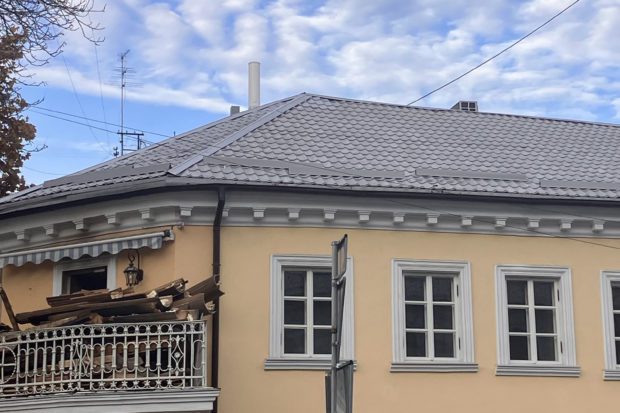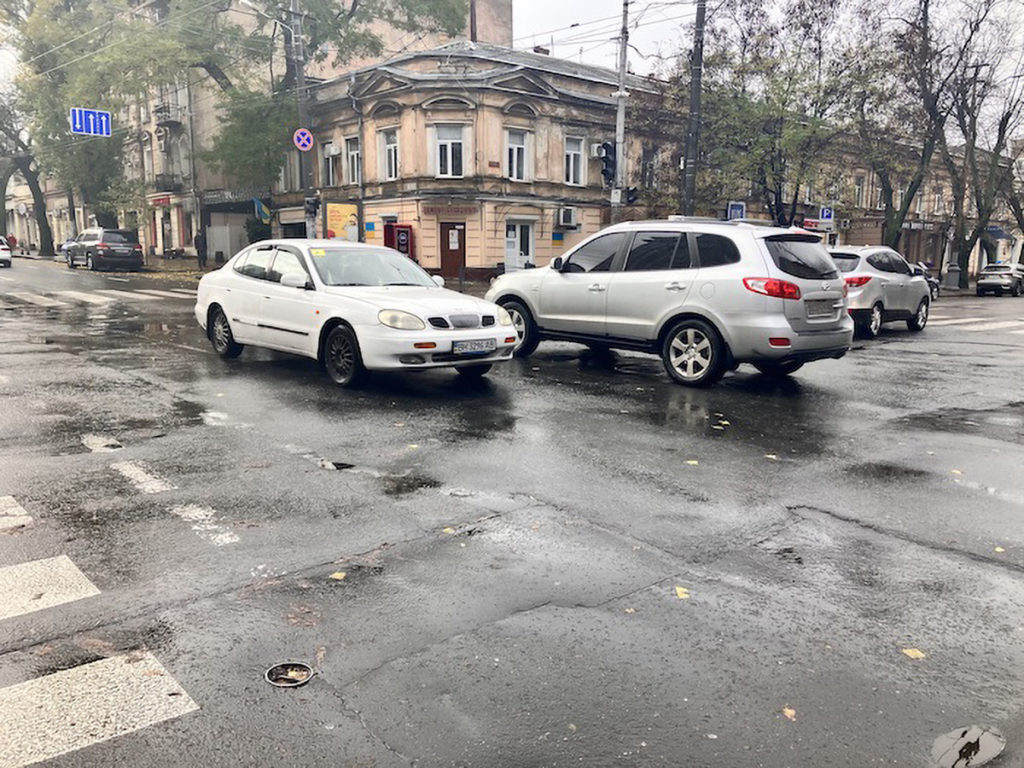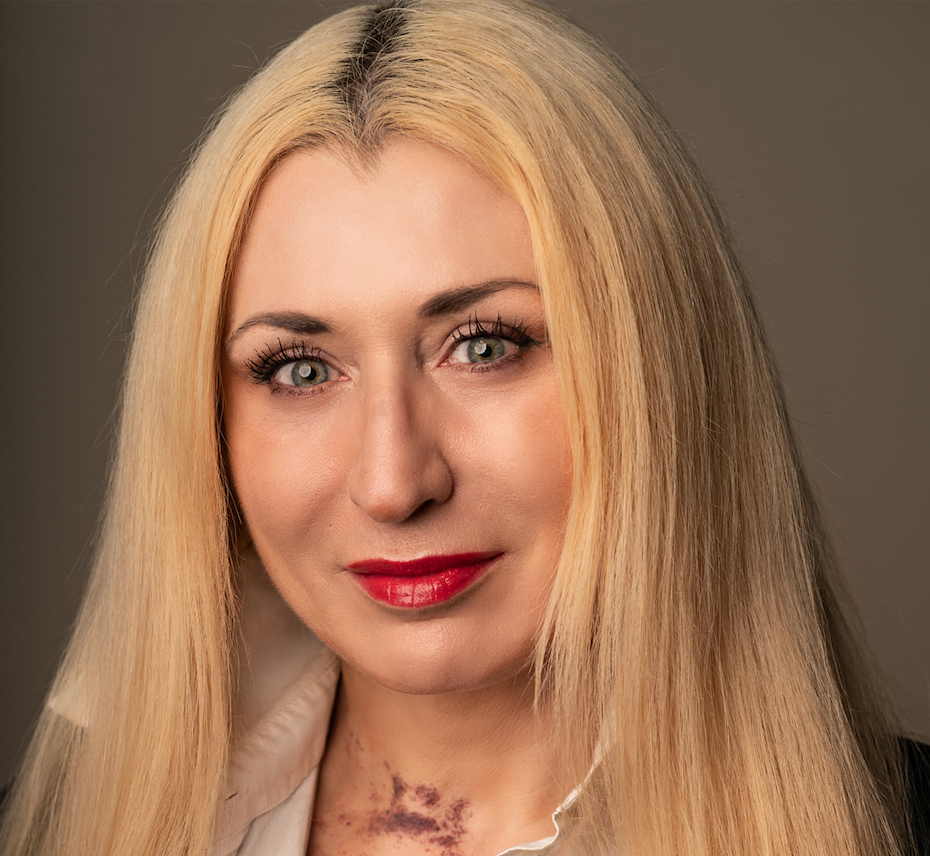

The first snow in Odesa, a southern seaport in Ukraine, was neither joyful nor quiet this year. The city woke up to the rumbling sounds of diesel generators shaking the streets. The Odesa region’s 1.5 million residents spent two days without electricity and central heating for the second time in 10 days.
The water pumps stopped working. Traffic lights were off. The Internet was down. The snow was not welcome. Neither were the Russian invaders.
After months of conventional warfare failures, the Kremlin turned to a hybrid war strategy that quickly became recognized as Kholodomor (“death by cold”), named after Stalin’s genocidal policy of Holodomor (“death by hunger”). Stalin-engineered artificial hunger, Holodomor, killed up to 5 million Ukrainians in 1932–1933.
In the winter of 2022, Russian missiles and Iranian-made drones continually target the energy infrastructure of Ukraine, already damaged by previous attacks.
Since Oct. 10, almost weekly, usually, on Mondays, but occasionally off the schedule, a massive air raid starts. Sirens signal the imminent approach of deadly weapons.
Next, a battle of Ukrainian air defense forces with dozens of missiles or Iranian-produced “Shahed” drones ensues. Even though most of the missiles and drones get intercepted and downed, some hit their targets.
On Nov. 23, the whole country of Ukraine lost power after one of the attacks. Most regions lost heat and water. That night, Volodymyr Zelenskyy, president of Ukraine, speaking in an online format to the emergency session of the UN Security Council, said: “When the temperature is below zero outside, and tens of millions of people are left without heat and water as a result of Russian missiles hitting energy facilities, this is an obvious crime against humanity.”
Air strikes and, lately, blackouts have become an everyday reality in Odesa during the nine months of war so there was no panic. Residents have stocked up on water, matches, wet wipes, multiple power banks, LED lamps, candles and flashlights, big containers of water and firewood.
However, by the end of the third day of the blackout, refrigerators started to leak and food supplies were spoiling. For the unwell or elderly residents of many high-rises, getting to the top floor without elevators, in the darkness, became an issue.
Public transportation running on electricity stopped a while ago. The traffic lights or street lamps did not work, and drivers could not see pedestrians stumbling around icy roads with flashlights. The fluctuations in temperature and power supply put prematurely born babies or patients in the ICU. With no running water, sewage soon became an issue.
Yet, Odesa is known for its resilience and sense of humor. Ukrainians are resourceful and proactive. State-run “invincibility hubs,” community centers where people can get warm, charge phones, get in touch with their loved ones and have hot drinks, opened throughout the country.
While the local authorities work around the clock to provide people with all the necessities during the long blackouts, central heating interruptions and halted supply of water, stores, cafés, restaurants and banks switched to diesel and gas generators and offered help to their customers.
Natasha, Amsterdam restaurant manager, said, “We are used to Russia inflicting blows. We have family in Poland and Turkey, and they ask us to flee but we are not leaving Odesa. We use generators and we are staying.”
In a café, Pepe, also running on a diesel generator, manager Petya said that families come to cook together on the weekends and there is a super-popular master class on making pirogi—a typical dish from Poland and Ukraine that resembles dumplings. The employees buy produce at Privoz, a famous local farmers’ market, also working amid blackouts.
“We are not afraid at all,” said Petya. “We have love and we care for each other and it makes us stronger.”
A waiter at 12 Monkeys, a bistro on the main street, echoed this sentiment, “We are not in the least intimidated and no one is feeling like negotiating with the terrorist state.”
The bistro has served customers who didn’t have cash, trusting them to pay the bill when the ATMs or credit cards start working again. Obtaining cash became problematic due to the ATMs being down, and credit cards could not be accepted due to the lack of a connection.
Lyuba, a pensioner, sold flowers at the corner and said that business is a bit slower but still going. She taught the author of this article to fry eggs on a candle and put pillows on the window to keep the icy air out.
“Lifehacks” are popular: Andrey, a massage therapist, shares a piece of advice to buy bulk paraffin to make budget-friendly candles to heat the room.
A new grocery store downtown just opened and ran in the darkness, with a strong smell of diesel inside. Small rooms are not equipped to be running on generators around the clock. However, businesses must keep going, for the sake of the city residents and the employees.
Victoria, the owner of a French bakery, does not plan to close her shop. “People have come here for years and have their favorite pastries,” she said. “We have ingredients mailed to us or buy them at the local market, and we have a generator. We are okay.”
“They only make us stronger,” said Oleksandr Syenkyevich, the mayor of Mykolaiv, another southern port city in Ukraine. Mykolaiv, located close to the frontline until November, survived almost eight months without drinking water and daily bombardments and is still standing strong.
“Read my lips: Without gas or without you? Without you. Without light or without you? Without you. Without water or without you? Without you. Without food or without you? Without you,” Zelenskyy wrote in September, addressing Russia on behalf of his compatriots.
“Cold, hunger, darkness and thirst are not as scary and deadly for us as your friendship and brotherhood. But history will put everything in its place. And we will be with gas, light, water and food…and WITHOUT you!” The president’s message resonates with Ukrainians.

In liberated Kherson, people said that they preferred “to live without power, water and the Internet than with Russians.” According to a recent poll by the Rating Group, 85% of Ukrainians believe that the Ukrainian victory in the war with Russia requires the liberation of all territories, including occupied Crimea and the occupied parts of eastern Donetsk and Luhansk oblasts, writes The Kyiv Independent.
In Odesa, Julien, a French citizen, residing in Ukraine for seven years, taught French and history online from a café, Vitrazh. He said, “People are very strong. They don’t give up. They won’t let Russians come here in Odesa.”
Katya Chalaya, the founder of the art collective Art as Resistance, opened her gallery during the war. The gallery runs candlelit exhibitions, poetry readings, acoustic music concerts and other cultural events even if there is power.
“We try, trust and believe,” said Chalaya, as her young daughter danced to the sound of Egyptian drums in the warm candlelight.

